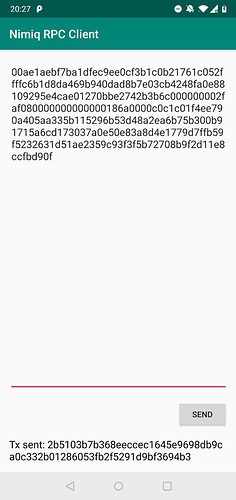Description/Bounty
The RPC API allows developers to connect to a Nimiq node from their favorite language. To facilitate their work, we want to create RPC client libraries for various popular languages:
-
Python - 250’000 NIM
 - delivered by @rraallvv
- delivered by @rraallvv
- Already partially started, linked as an example below, but needs to be completed.
- nimiq-api-python could use some polishing. A lot of RPC methods may be missing and the documentation is not very exhaustive.
- Also a release to the package index would be nice.
-
PHP - 600’000 NIM
 - delivered by @mario
- delivered by @mario
-
Swift for iOS 600’000 NIM
 - delivered by @rraallvv
- delivered by @rraallvv
-
Java or Kotlin for Android and standalone Java applications 600’000 NIM
 - delivered by @tomkha
- delivered by @tomkha
-
Go 400’000 NIM
 - delivered by @redmaner
- delivered by @redmaner
-
Ruby 400’000 NIM
 - delivered by @emile
- delivered by @emile
-
Rust 400’000 NIM
 - delivered by @Stefan
- delivered by @Stefan
-
C# 400’000 NIM
 - delivered by @rraallvv
- delivered by @rraallvv
- Suggest more
An example for Python can be found here: GitHub - jgraef/nimiq-api-python: Python client for the Nimiq JSON RPC API.
Completion Criteria
The proposal is completed when
- The library has been created natively in the chosen language.
- All calls to the RPC client using the new library work successfully against core-js.
- Complete documentation: in code and as
/docs/using e.g. markdown for GitHub Pages - Finally, send a PR to the appropriate repo in Nimiq Community · GitHub for review. If the repo for your language does not exist yet, contact @svub or @Richy.
- The submission is complete when the code has been merged.

 . My test code, that uses the library, is part of the repository in the /example folder.
. My test code, that uses the library, is part of the repository in the /example folder.

